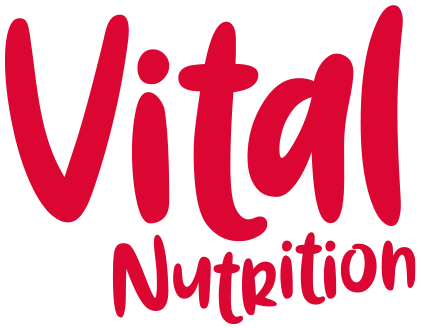Hungry all the time? Could it be your hormones?
Do you feel hungry all the time, no matter how much you eat? It could be that your hormones have a part to play in your ravenous appetite. I am not talking about oestrogen and testosterone, although they could have an impact too. Meet your hunger hormone, gherlin. Ghrelin is one of the hormones responsible for regulating your appetite, controlling your hunger, food intake and fat storage.
The Hunger Hormone
When ghrelin levels are high, you feel hungry. Stimulated by the cells in your stomach, ghrelin sends signals to the hypothalamus in your brain telling you it’s time to eat. The more ghrelin in your bloodstream, the hungrier you will feel. After eating, ghrelin levels reduce, leaving you feeling satiated.
Ghrelin production is a survival instinct. The hunger response tells us when we need nourished so that can function. But sometimes ghrelin levels can be a little out of sync.
Here’s an example. Have you ever noticed that the day after a bad night’s sleep, your appetite is insatiable? No matter how much you eat, you don’t feel full? That’s because when you don’t sleep well, ghrelin levels increase making you feel really hungry.
Other things can influence ghrelin production too. When you go on a diet and restrict your calorie intake, ghrelin levels increase - if you have ever followed a low fat diet, you will know all about this - all you can think about is food. The important thing is where your calories are coming from, rather than simply cutting back - more fibre, enough protein and some good fats help keep a healthy balance.
Interestingly, research has shown lower fasting levels of ghrelin in people who are overweight, obese or morbidly obese. This suggests that over time, overeating can decrease sensitivity to ghrelin, meaning we lose this essential control mechanism. It’s important to remember that ghrelin may be equally as important for weight gain. It’s all about balance.
So, here are a few hot tips, to help keep ghrelin in balance:
Eat a diet rich in fibre from fruit and vegetables, pulses and wholegrains. Fibre slows down our digestion while also keeping our gut bacteria diverse and healthy. Foods high in fibre also tend to be lower in calories and higher in nutrient density meaning you get better bang for your buck when it comes to calorie intake.
Limit intake of high GI carbohydrates and processed foods high in sugar and artificial sweeteners. White, refined and processed foods are high in calories and saturated fat and low in nutrients. As well as spiking your blood sugar for a short period, sending your hunger and energy levels on a rollercoaster, they trigger release of dopamine, the neurotransmitter associated with reward. We start to associate that short lived high with reward as opposed to the feeling of being nourished and satiated.
Eat protein with every meal. Incorporating a portion of lean or vegetable protein into each meal (eggs, oily fish, organic chicken or turkey, tofu, beans and pulses) will help keep you fuller for longer. It will also blunt the insulin spike you get from eating a carbohydrate based meal, preventing the sugar cravings which inevitably follow that initial sugar high.
Reduce stress Studies have shown that chronic stress increases circulating ghrelin levels. Stress also interacts with our brain’s reward pathways making us want to comfort eat when we are stressed or anxious. Finding other ways of dealing with stress like yoga, mindfulness being in nature, or your daily walk will help reset the stress cycle.
Sleep well Sleep deprivation has been associated with an increase in ghrelin levels, appetite and hunger. Aim for 7-9 hours per night. Get into good bedtime habits like limiting screen time, avoiding heavy meals and alcohol before bed, and try to stick to regular sleep and waking up times to regulate your sleep-wake rhythm.
Exercise Research in recent years has indicated a link between High Intensity Interval Training (HIIT) and reduced ghrelin levels. Incorporate some high intensity exercise to your lifestyle each week – circuits, sprints, cycling. Get out and get a sweat on!
This blog post first appeared as my column in The Irish News on Saturday 30 January 2021.

